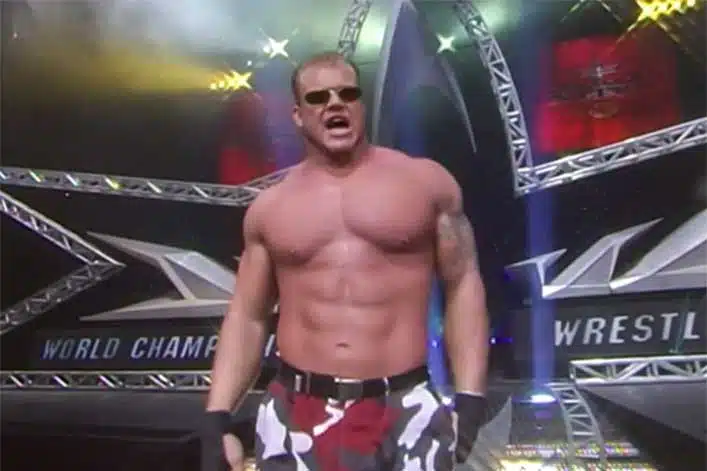Chase Tatum | Drug Overdose Death
- About Chase Tatum
- How Chase Tatum Died
- Chase Tatum’s History Of Substance Abuse
- Recovery Is Possible

On March 23, 2008, wrestler and entertainer Chase Tatum was found dead at his home in Buckhead, Georgia, at the age of 34. The Fulton County Medical Examiner later determined in a toxicology report that the cause of death was an accidental drug overdose involving painkillers.
Before his death, Tatum had a career as a professional wrestler in the World Championship Wrestling league (WCW).
Outside of wrestling, Tatum won the Mr. Georgia bodybuilding competition at the age of 19. He played various movie roles in films such as Who’s Your Caddy and Unshackled. He also briefly worked as the road manager and personal assistant for popular hip-hop and R&B act Outkast.
Tatum is one of many pro wrestlers who passed away at a young age. Wrestlers such as Brian Pillman, Curt Hennig, and Tatum abused drugs to deal with the stresses of their life and career, and Tatum himself suffered from severe back problems for many years.
Tatum’s difficulties with painkiller abuse and chronic pain may have been factors in his early passing.
About Chase Tatum
Born William Chase Tatum in Kennesaw, Georgia, on November 3, 1973, a young Tatum may have taken an interest in bodybuilding and his self-image at a young age.
He won the Mr. Georgia bodybuilding competition at the young age of 19, and was recruited by the World Championship Wrestling league due to his fitness and stature. He debuted in the WCW in 1999.
WCW
Tatum found success in the WCW after joining the rap group No Limit Soldiers, who were attempting to make a name for themselves under their leader Master P.
Tatum and the No Limit Soldiers earned acclaim in the ring by feuding with the West Texas Rednecks. Tatum’s wrestling career would end shortly after.
Post-Wrestling Career
After pro wrestling, Tatum continued to work as a personal trainer. He also worked and toured with the band Outkast, including a role alongside rapper Big Boi of Outkast in the movie Who’s Your Caddy?
Tatum eventually underwent back surgery for a degenerative disc that may have contributed to his chronic, severe back problems. Despite the apparent success of the surgery, Tatum would pass away only 10 days after the operation .
How Chase Tatum Died
On March 23, 2008, Chase Tatum was found dead in his Buckhead, Georgia, home. He was 34 years old. The coroner’s office stated his cause of death was an apparent accidental drug overdose. The painkillers he took for years may have played a role in the fatal overdose.
Shortly after his death, Tatum’s father Roy Tatum said to the Atlanta Journal-Constitution that his son was planning to enter a rehab program for his painkiller abuse. Unfortunately, Tatum did not have the opportunity to get proper addiction treatment.
Chase Tatum’s History Of Substance Abuse & Rehab
Reports state that Tatum was afflicted with chronic back pain due to his brief wrestling career.
After Tatum’s wrestling career ended, he may not have had health insurance to get help for his chronic pain. Instead, he may have abused painkillers to manage his back issues, according to his father.
Chase Tatum was planning to get help for his painkiller abuse, before the abuse patterns took his life.
Recovery Is Possible
Tatum joins a number of other professional wrestlers who passed away at a young age due to drug overdose. His lack of access to health insurance may have played a role in his inability to get help.
Treating a chronic drug abuse problem can be difficult without professional help. However, recovery is possible. To learn about our treatment services and payment options, please contact us today.
Written by Ark Behavioral Health Editorial Team
©2024 Ark National Holdings, LLC. | All Rights Reserved.
This page does not provide medical advice.
IMDB - Chase Tatum - IMDb
Newcastle News - OVERDOSE: Former WCW wrestler found dead
Slam Wrestling - Chase Tatum dead at 34

Questions About Treatment?
Ark Behavioral Health offers 100% confidential substance abuse assessment and treatment placement tailored to your individual needs. Achieve long-term recovery.
100% confidential. We respect your privacy.
Prefer Texting?
Our friendly support team is here to chat 24/7. Opt out any time.







 Learn More
Learn More








